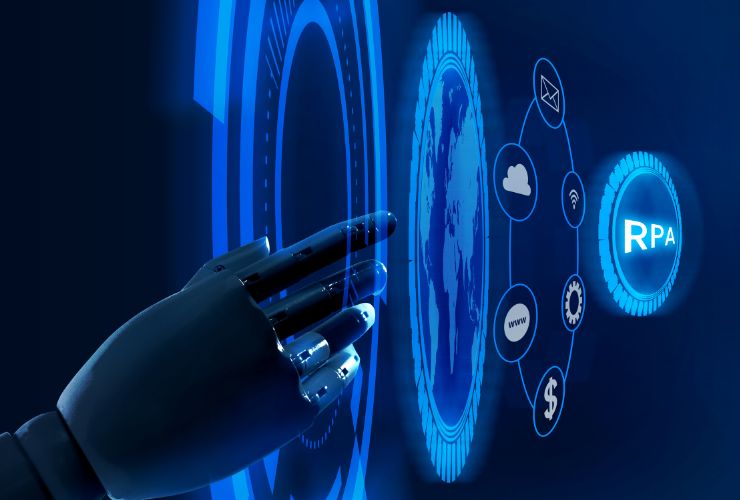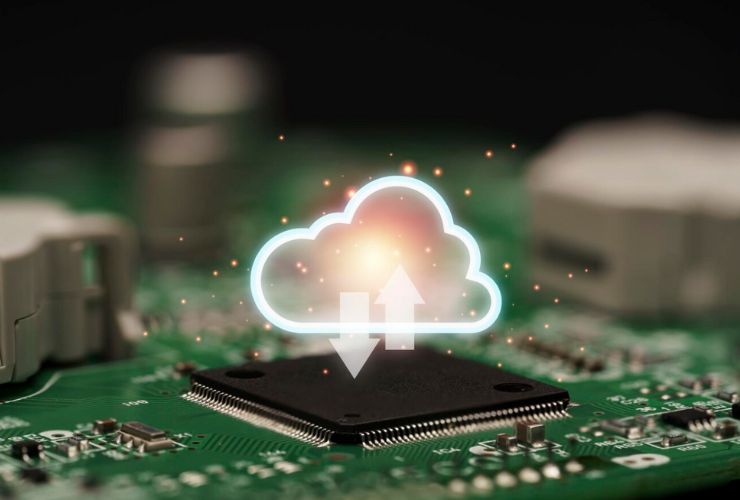In the current AI-enabled generation, developers are working to create applications that are smarter, faster, and more intuitive in order to provide users with an experience that is best in class. Microsoft Azure AI creates an ecosystem of tools and services that allows developers to seamlessly harness intelligence in their solutions — intelligent processing of natural language, image recognition, predictive analytics and automation, just to name a few.
Let’s take a closer look at the Azure AI services that every developer should be aware of — the possibilities of application development today in the modern era are rapidly changing.
1. Azure Cognitive Services
Azure Cognitive Services is one of the easiest ways to get started with infusing intelligence within applications. It contains a myriad of pre-built APIs — everything from vision, speech and language processing to decision making capabilities.
With the available APIs, developers will be able to easily integrate capabilities like:
- Speech recognition and real-time translation across multiple languages for multilingual applications
- Facial and image analysis capabilities for a security or retail, or healthcare use cases
- Text analytics and sentiment detection for interpreting dataset of customer feedback and social sentiment
With this suite, developers will be able to elevate their existing applications with human-like intelligence — and not have to worry about having the requisite AI and/or machine learning skills.
2. Azure Machine Learning (Azure ML)
As part of its AI ecosystem, Azure ML is the foundation that allows developers and data scientists to build, train and deploy custom ML models at scale.
It offers:
- A low code drag and drop interface to support experimentation quickly
- Python and R SDKs for professional developers
- Automated ML (AutoML) for faster model development
- MLOps integration to enable continuous deployment and monitoring
Azure ML creates the bridge between experimentation and production enabling teams to operationalize AI efficiently with enterprise-grade scalability and security.
3. Azure OpenAI Service
Azure OpenAI Service combines OpenAI’s innovation of GPT Models (GPT-4 & Codex) with Azure’s secure and compliant cloud technologies to allow developers to leverage these large language models to automatically generate human-like text, chatbots, write code, summarize documents, and more.
Real use cases include:
- Conversational AI & customer support automation
- Content generation, summarization and translation
- Code completion, debugging and generating documentation
This allows a developer to instill creativity and intelligence into their software product while following enterprise security and customer privacy requirements.
4. Azure Bot Service
Azure Bot Service provides an integrated environment to develop, test and deploy AI chatbots that carry on conversational interactions with users across multiple channels – such as;
It integrates seamlessly with Language Understanding (LUIS) and Azure Cognitive Services, enabling developers to build rich, context-aware conversational experiences that improve engagement and streamline customer interactions.
5. Azure Cognitive Search
Azure Cognitive Search (ACS) is not a straightforward search engine, but a search engine which utilizes indexing based on artificial intelligence, semantic search, and language understanding to deliver relevant results based on user intent.
Cognitive Search can:
- Enrich and enhance search result relevance using AI models,
- Extract key phrases, entities, and relationships from data, and
- Provide personalized, contextual results.
This is an application suited for enterprise applications, ecommerce sites, and document-heavy applications that rely on fast intelligent search functions.
6. Azure Form Recognizer
Manual data entry increases time and error potential. Azure Form Recognizer uses Optical Character Recognition (OCR) and machine-based data extraction to automate document processing.
It is capable of analyzing and extracting structured data from invoices, receipts, forms, and ID cards, which can lead to reduced workflow friction. Developers can train custom models for specific layouts so that this solution is adaptable for any organization or industry.
7. Azure Video Indexer
As audiences are increasingly creative with video-based content consumption, Azure Video Indexer provides organizations with a tool to derive insights from video and audio. It identifies speakers, determines sentiment, generates transcripts, and automatically tags scene changes.
Developers can use Video Indexer to:
- Make video content searchable,
- Generate metadata for an archive of media, and
- Improve subjects of accessibility through generating captions and transcripts.
This is a robust solution for media platforms and higher education.
8. Azure AI Studio (New Feature)
The recently announced Azure AI Studio is a single pane of glass that enables the seamless building, testing, and managing of generative AI applications. Using Azure AI Studio, developers can orchestrate Azure OpenAI, Cognitive Services, and Azure ML in a single workspace to streamlining building and deploying customized AI workflows with an eye to scale, governance, and compliance.
Conclusion
Azure AI continues to be at the forefront of changing how developers build intelligent and scalable apps. Whether it’s smart chatbots, process automation, media analysis or predictive modeling, Azure’s AI ecosystem enables empower innovation at every phase of the development process.
By leveraging these top Azure AI services, developers can access new possibilities, innovate faster, and drive real-world value through AI powered applications.
Contact Us Today













 Database Development
Database Development












































